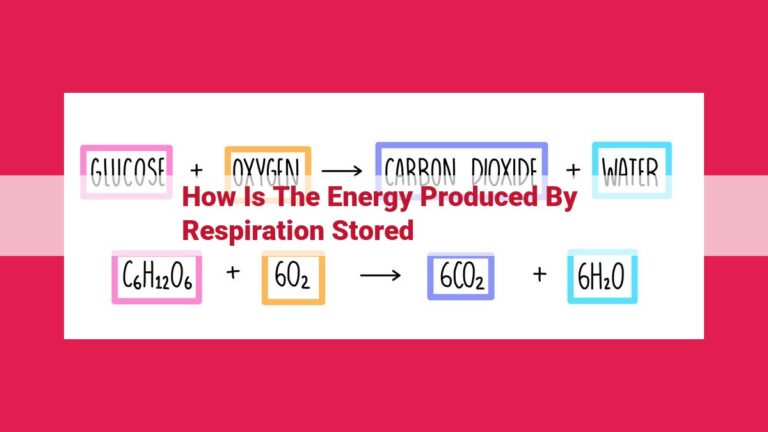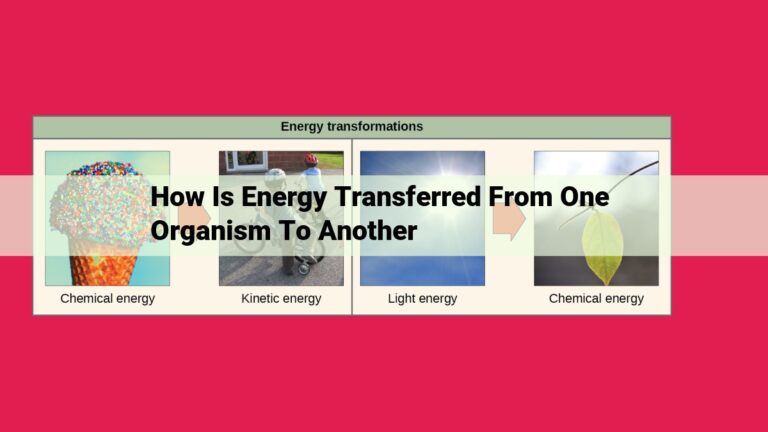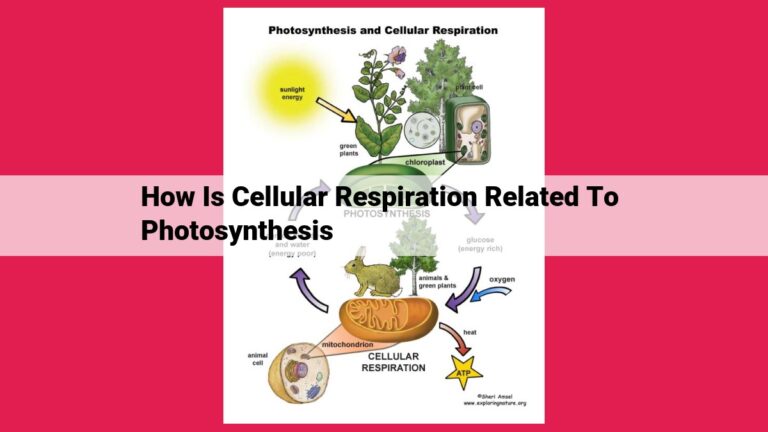Essential Nutrient Needs: How They Change Throughout Our Lives

As we journey through life, our bodies experience a symphony of changes, and so do our nutritional requirements. Macronutrients like carbohydrates, protein, and fats fuel our bodies and build tissues, but their needs fluctuate with age, sex, and activity levels. Micronutrients, essential for bodily functions, also vary in importance throughout our lives. Caloric needs, influenced by age, sex, weight, and activity, dictate energy balance. Fluid intake, crucial for hydration, adapts to age, sex, climate, and activity level. Nutrient absorption and metabolism, affected by age and health, impact the utilization of nutrients. Nutritional needs evolve with age, requiring adjustments in dietary intake to ensure optimal health and well-being.
Macronutrient Needs: Fueling the Body Throughout Life
Macronutrients, the building blocks of our daily calorie intake, play a critical role in providing energy and supporting various bodily functions. Carbohydrates serve as the primary source of energy, fueling our bodies for daily activities. Proteins are essential for tissue repair, growth, and the production of hormones and enzymes. Fats, on the other hand, provide long-lasting energy, aid in the absorption of fat-soluble vitamins, and facilitate hormonal regulation.
As we move through different stages of life, our bodies’ demand for these macronutrients shifts. Children and adolescents, with their active lifestyles and growth spurts, require higher proportions of carbohydrates and proteins to support their developmental needs. Adults generally maintain a balanced macronutrient distribution, with carbohydrates providing around 45-65% of their daily energy intake, protein accounting for 10-35%, and fats contributing 20-35%.
Physical activity also influences macronutrient requirements. Individuals engaged in strenuous exercise or athletic training necessitate a higher intake of carbohydrates to replenish energy stores. Conversely, those with sedentary lifestyles may require a lower proportion of carbohydrates and a higher proportion of fats in their diets.
Understanding the dynamic nature of macronutrient needs is crucial for maintaining optimal health and well-being. By tailoring our diets to our age, sex, and activity levels, we can ensure that our bodies receive the essential nutrients they need to thrive.
Micronutrient Needs: Fueling Your Body’s Inner Workings
Micronutrients, the indispensable vitamins and minerals, play a crucial role in our well-being. They support a myriad of bodily functions, including immune response, nerve function, and bone health. Understanding your micronutrient needs is essential for optimal health throughout life.
Adjusting Intake with Time’s Transitions
As we age, our bodies change. So do our micronutrient requirements. Infants and children have unique nutrient needs for growth and development. Adults require a different balance to maintain health and prevent chronic diseases. The elderly may face absorption challenges and increased risk of deficiencies.
Sex-Specific Needs
Men and women have different micronutrient requirements due to hormonal and physiological variations. For instance, women need more iron to replenish losses during menstruation.
Activity Level’s Impact
Physical activity influences micronutrient needs. Athletes require higher levels of vitamins and minerals to support increased energy expenditure and muscle recovery.
Ensuring Balanced Intake
To meet your micronutrient needs, aim for a varied diet that includes fruits, vegetables, whole grains, lean proteins, and low-fat dairy. If necessary, consider consulting a registered dietitian or healthcare professional to assess your individual requirements and make appropriate recommendations.
The Takeaway
Micronutrients are essential for maintaining a healthy body and mind. By understanding how our needs change over time and adjusting our intake accordingly, we can optimize our well-being and enjoy a vibrant life at every stage.
How Caloric Needs Change Over Time
Like a delicate dance, our bodies’ caloric needs gracefully fluctuate throughout life’s chapters. Calories, the fuel that powers our every move and breath, are meticulously tailored to our unique age, sex, and activity levels.
As we navigate the youthful years, our basal metabolic rate (BMR)—the number of calories our bodies burn at rest—roars like a raging fire, consuming a significant portion of our daily energy expenditure. This elevated BMR reflects the high energy demands of childhood and adolescence, when growth and development are at their peak.
As we transition into adulthood, our BMR gradually decelerates, reflecting the more sedentary nature of our daily routines. However, this reduction in BMR is not uniform across the board. Men, with their typically greater muscle mass, tend to have higher BMRs than women.
Physical activity also plays a pivotal role in shaping our caloric requirements. The more we engage in strenuous activities, the more calories we burn. This is because exercise increases our metabolic rate, both during and after our workouts.
For instance, a vigorous cycling session can elevate our BMR for up to 24 hours post-exercise. Therefore, individuals who maintain active lifestyles may require more calories to fuel their bodies effectively.
It’s important to note that our caloric needs are not set in stone. As we age, our BMR naturally declines, and our activity levels may also fluctuate. It’s crucial to regularly reassess our caloric needs to ensure we’re consuming the right amount of energy to maintain a healthy weight and optimal well-being.
The Essential Role of Fluids: Staying Hydrated for Optimal Well-being
Fluids, primarily water, are the lifeblood of our bodies. They make up around 60% of our body weight and play a crucial role in countless bodily functions, from regulating body temperature to transporting nutrients and oxygen to our cells. Staying adequately hydrated is essential for maintaining optimal health and well-being.
Our fluid needs vary depending on several factors, including:
- Age: Infants and children have a higher proportion of water in their bodies than adults, so they need to drink more fluids relative to their body weight.
- Sex: Men typically have a higher proportion of body fluids than women.
- Activity Level: Physical activity increases fluid needs, as we lose water through sweat.
- Climate: Living in hot or humid climates increases fluid needs due to increased sweating.
It’s easy to overlook the importance of staying hydrated, but dehydration can have serious health consequences. Even mild dehydration can lead to fatigue, headaches, and difficulty concentrating. More severe dehydration can cause confusion, disorientation, and even seizures.
To ensure adequate hydration, aim to drink eight glasses of water per day. This amount may vary depending on your individual needs and activity level. Listen to your body and drink when you feel thirsty. Certain beverages, such as juice or soda, can hydrate but also contain added sugars or calories that should be limited.
If you’re concerned about your fluid intake, consult with a healthcare professional. They can assess your individual needs and recommend an appropriate hydration plan. Staying hydrated is a simple but effective way to maintain your health and well-being. Make sure to drink plenty of fluids throughout the day, especially when you’re active or in hot weather. Your body will thank you for it!
Nutrient Absorption: The Journey of Nourishment
As our bodies navigate the symphony of life, they rely on a steady stream of nutrients to thrive. These building blocks, extracted from the food we consume, embark on an intricate journey to nourish our cells and fuel our existence. Understanding the process of nutrient absorption unveils the remarkable system that sustains our health.
The Digestive Symphony:
The digestive tract, a meticulously crafted network of organs, serves as the stage for nutrient absorption. After food is consumed, it undergoes a series of transformations, each designed to break down its components into their simplest form. Enzymes, nature’s molecular tools, play a crucial role in this breakdown, dismantling complex carbohydrates, proteins, and fats into their constituent sugars, amino acids, and fatty acids.
Across the Intestinal Barrier:
Once these nutrients are broken down, the intestinal walls become the gateway to their entry into the bloodstream. Through a process known as diffusion, nutrients passively cross the intestinal lining into the surrounding blood vessels. Microvilli, tiny finger-like projections along the intestinal walls, increase the surface area for absorption, ensuring maximum nutrient uptake.
Factors Influencing Absorption:
The efficiency of nutrient absorption is influenced by a myriad of factors. Age plays a role, as the absorption of certain nutrients, such as calcium, may decline with advancing years. Health conditions can also impact absorption, with conditions like celiac disease or inflammatory bowel disease compromising the intestinal lining and hindering nutrient uptake. Additionally, certain medications can interfere with absorption, binding to nutrients and preventing their passage into the bloodstream.
Nurturing the Absorption Process:
Maintaining a healthy digestive system is paramount for optimal nutrient absorption. A balanced diet rich in fruits, vegetables, and whole grains provides the necessary dietary fiber to support intestinal health. Regular exercise enhances blood flow to the digestive organs, facilitating nutrient delivery. Furthermore, staying hydrated ensures that nutrients have the necessary aqueous environment for absorption.
The process of nutrient absorption is a complex but essential one, providing the foundation for our well-being. Understanding the factors that influence absorption empowers us to make informed choices that optimize our health and ensure we receive the nourishment we need to thrive.
Nutrient Metabolism: The Unseen Alchemy of Nourishment
At the heart of our well-being lies a symphony of chemical transformations known as nutrient metabolism. This intricate process converts the raw materials we ingest into the energy and building blocks that power our bodies.
A Cascade of Conversions:
Nutrient metabolism is a complex dance, involving a series of intricate steps. First, enzymes break down macronutrients (carbohydrates, proteins, and fats) into smaller molecules. These molecules are then absorbed into the bloodstream and transported to cells.
Within cells, mitochondria and other organelles work tirelessly to convert these molecules into adenosine triphosphate (ATP), the universal energy currency of life. ATP fuels every cellular function, from muscle contractions to neural impulses.
Factors Influencing the Metabolic Maze:
The efficiency of nutrient metabolism varies significantly depending on several factors:
- Age: As we age, our metabolic rate slows down, requiring fewer calories to maintain weight.
- Health Conditions: Certain diseases, such as diabetes and thyroid disorders, can disrupt hormone levels and impair nutrient metabolism.
- Medications: Some medications can interfere with the absorption or utilization of nutrients.
The Delicate Balance of Health and Nutrition:
Optimal nutrient metabolism is crucial for overall health. Proper metabolism ensures that our bodies receive the energy and nutrients they need to function optimally. Conversely, nutrient deficiencies or metabolic disorders can lead to a cascade of health issues.
Optimizing Nutrient Metabolism:
To support efficient nutrient metabolism, we can adopt healthy habits:
- Maintain a balanced diet: Consume a variety of nutrient-rich foods from all food groups.
- Hydrate adequately: Drink plenty of fluids, especially water, to support metabolic processes.
- Get regular exercise: Physical activity increases metabolic rate and improves nutrient utilization.
- Consult healthcare professionals: If you suspect a nutrient deficiency or metabolic disorder, seek professional guidance for appropriate interventions and recommendations.
By understanding the intricate world of nutrient metabolism, we gain a profound appreciation for the importance of nourishing our bodies. Through mindful dietary choices and healthy habits, we can optimize this vital process, ensuring that our bodies have the fuel and building blocks they need to thrive.
Unveiling the Dynamic Relationship Between Nutrient Requirements and the Journey of Life
As we journey through life, our bodies undergo a fascinating transformation. Nutrient requirements evolve with each passing stage, reflecting the unique demands of our changing physiology. These requirements are crucial for maintaining optimal health throughout our lifespan.
Age plays a significant role in shaping nutrient needs. In infancy, rapid growth and development necessitate a high intake of energy, protein, and other essential nutrients. As we progress to adulthood, nutrient requirements gradually stabilize, supporting the maintenance and repair of body tissues. In our later years, the body’s metabolism slows, and nutrient needs may shift toward a greater emphasis on vitamins and minerals to compensate for potential age-related declines.
Sex also influences nutrient requirements. Men typically have higher caloric needs due to a larger muscle mass. Women, on the other hand, require more iron, especially during their reproductive years. These differences highlight the importance of tailoring dietary recommendations to meet individual nutritional needs.
Health conditions can profoundly affect nutrient requirements. Individuals with chronic diseases, such as diabetes or heart disease, may have specific dietary restrictions or increased nutritional needs. Illness or injury can also temporarily alter nutrient requirements, necessitating a modified diet for optimal recovery.
Understanding these variations is essential for meeting the unique nutritional demands of each individual. By consulting with healthcare professionals, individuals can develop personalized dietary strategies that support their health and well-being throughout the journey of life.
Nutritional Status: A Reflection of Your Health
Assessing your nutritional status is crucial for understanding your overall well-being. Physical exams, blood tests, and dietary assessments are all tools used to evaluate your body’s nutritional intake and needs.
Your nutritional status is influenced by various factors, including dietary habits, health conditions, and socioeconomic status. Good nutrition is essential for optimal health, but nutrient deficiencies can arise from inadequate dietary intake, malabsorption disorders, or increased nutrient requirements due to medical conditions.
Dietary assessments, such as food frequency questionnaires and 24-hour recalls, provide insights into your usual dietary patterns. These assessments can identify potential nutrient deficiencies or excesses. Physical exams can reveal signs of nutritional deficiencies, such as dry skin, brittle nails, or muscle wasting. Blood tests can measure levels of essential nutrients, such as vitamins, minerals, and electrolytes, to assess your nutritional status more precisely.
Maintaining a healthy nutritional status is essential for your overall health and well-being. By working with healthcare professionals, individuals can identify and address any nutritional deficiencies or excesses, promoting optimal health and reducing the risk of chronic diseases related to poor nutrition.
Understanding Nutritional Risk Over Time
As we traverse through the journey of life, nutritional needs undergo a constant metamorphosis, influenced by our age, sex, and lifestyle choices. One crucial aspect of this evolving tapestry is nutritional risk.
Defining Nutritional Risk
Nutritional risk refers to a state where individuals have an increased likelihood of developing nutrient deficiencies or excesses due to compromised nutrient intake, absorption, or utilization. It encompasses a myriad of potential causes, including:
- Advanced Age: With aging, the body’s ability to absorb and metabolize nutrients declines, potentially leading to inadequate intake or absorption.
- Chronic Health Conditions: Certain diseases, such as cancer, chronic kidney disease, and gastrointestinal disorders, can impair nutrient absorption and utilization.
- Dietary Habits: Poor dietary choices, including restrictive diets or excessive consumption of processed foods, can contribute to nutritional deficiencies.
Strategies for Mitigating Nutritional Risk
Addressing nutritional risk is essential for preserving our well-being and reducing the likelihood of nutrient-related health issues. There are several effective strategies we can adopt to minimize these risks:
- Maintaining a Balanced Diet: Consuming a variety of nutrient-rich foods from all food groups ensures a comprehensive intake of essential vitamins, minerals, and macronutrients.
- Prioritizing Nutrient-Dense Sources: Opting for foods such as fruits, vegetables, whole grains, and lean protein provides a higher concentration of nutrients compared to processed or sugary alternatives.
- Hydrating Adequately: Staying well-hydrated is crucial as water plays a vital role in nutrient absorption and transport throughout the body.
- Consulting Healthcare Professionals: Consulting with healthcare professionals, such as registered dietitians or physicians, can provide personalized guidance on nutritional needs and address any specific concerns or risks.
By implementing these strategies, we can significantly reduce nutritional risk and optimize our overall health. Remember, our nutritional journey is an ever-evolving one, and it is never too late to make informed choices that support our well-being.




